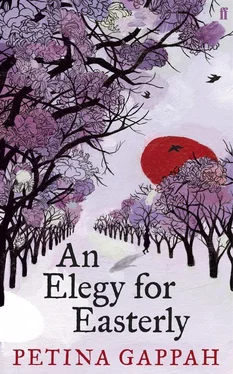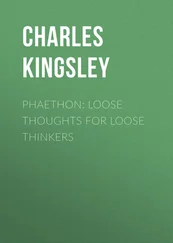Petina Gappah - An Elegy for Easterly
Здесь есть возможность читать онлайн «Petina Gappah - An Elegy for Easterly» весь текст электронной книги совершенно бесплатно (целиком полную версию без сокращений). В некоторых случаях можно слушать аудио, скачать через торрент в формате fb2 и присутствует краткое содержание. Год выпуска: 2009, Издательство: Faber & Faber, Жанр: Современная проза, на английском языке. Описание произведения, (предисловие) а так же отзывы посетителей доступны на портале библиотеки ЛибКат.
- Название:An Elegy for Easterly
- Автор:
- Издательство:Faber & Faber
- Жанр:
- Год:2009
- ISBN:нет данных
- Рейтинг книги:4 / 5. Голосов: 1
-
Избранное:Добавить в избранное
- Отзывы:
-
Ваша оценка:
- 80
- 1
- 2
- 3
- 4
- 5
An Elegy for Easterly: краткое содержание, описание и аннотация
Предлагаем к чтению аннотацию, описание, краткое содержание или предисловие (зависит от того, что написал сам автор книги «An Elegy for Easterly»). Если вы не нашли необходимую информацию о книге — напишите в комментариях, мы постараемся отыскать её.
An Elegy for Easterly — читать онлайн бесплатно полную книгу (весь текст) целиком
Ниже представлен текст книги, разбитый по страницам. Система сохранения места последней прочитанной страницы, позволяет с удобством читать онлайн бесплатно книгу «An Elegy for Easterly», без необходимости каждый раз заново искать на чём Вы остановились. Поставьте закладку, и сможете в любой момент перейти на страницу, на которой закончили чтение.
Интервал:
Закладка:

There is laughter from the back garden as the daughters-in-law cook over an open fire. ‘You are not serious,’ says Mukai. ‘That cannot be what she said.’
‘Honestly!’ says a voice that I recognise as my Uncle Donald’s wife. ‘I swear by my father who is buried at Serima Mission that that is exactly what she said.’
There is more laughter. It is not out of place in this house of mourning. This is how things are; we meet only to bury our dead. And why not laugh as we do so? We part only to meet again at funerals. The statisticians whose business it is to quantify, measure and average human experience say that there are three thousand deaths every month in our country, and I imagine that in this very month there are three thousand homes holding three thousand wakes, there are three thousand lots of chema funeral donations, three thousand homes in which will arise the sudden quarrels between those who do not like each other but must surrender to the undeniable imperative of blood, three thousands lots of daughters-in-law laughing over the funeral pots.
As I turn away from the laughter, I am followed by Uncle Donald’s wife who pulls me into a corner and tells me that Mai Lisa has been saying things . I am as used to Mai Lisa saying things as I am to the solicitous relatives who ensure that we hear every word.
‘I do not mean to be a gossip,’ she says, in what she considers a whisper, ‘but Mai Lisa is saying your family is pestering her daughter, and that it is not her fault Peter drank away his father’s inheritance, and what sort of education did you and Jonathan receive if it means that you must rely on her child, and anyway, she has told Lisa to do what is best for herself, to do what is convenient to her and not worry about what ungrateful people might think. For, do not the elders say that if you rear a dog on milk, it will bite your hand the next morning?’
‘You know I am not one to gossip,’ Uncle Donald’s wife says again, ‘but I feel that your mother should be told these things.’
My mother would not care if Mai Lisa spewed out her poison before her. She has turned her face to the wall and does not always respond to Mukai’s entreaties to eat or to rest, or to walk in the garden. She no longer asks after the news from England. I know that she must think of the words that were spoken between her and Peter, and that she must wake in her living nightmare of having said words that cannot be taken back; words that were spoken out of defeat and exhaustion; words that mean everything and nothing.
I am the only one apart from Peter who heard those words, but I cannot comfort her. I cannot say to her: ‘It was not you. This was a path he was on from which we could not divert him.’ To say these platitudes would be to acknowledge that those words were said, to acknowledge that they were said would mean asking questions that only Peter can answer. So I find myself hoping for the only thing that can make it better, that the post-mortem will show that he did not die of his own hand, that another murdered my brother.

As the days become nights and the weeks become one month, Jonathan and I resolve to handle the matter ourselves. We go to the British embassy to apply for visas to go to England. Inside we are caught in a sea of humanity whose hopes are pinned on those words: ‘Leave to enter granted.’ As we wait, my attention is attracted by a woman in a red beret who has her eyes closed as her lips move in prayer.
I am close enough to hear her mutter, ‘Lord you are mighty, Jehovah. Look on your suffering servant and assist her, Jehovah. I call upon your blessings this day, Almighty.’ She has to interrupt her prayer as her number is called. Her shouted ‘Thank you, Jehovah’ as she sees the magic words in her passport is infectious, people crowd around her to see and marvel at the visa, to touch the passport, and maybe transfer some of her good fortune onto themselves. Her joy suggests that she is just a tourist exulting at the thought of seeing the changing of the guard at Buckingham Palace.
This is the only light moment that morning. The window is shut as Jonathan and I get to it, and we have to stand in another queue. We are served by a man who does not look us in the face, but ticks our forms as he eyes his watch.
‘What is your business in England?’
‘One of us must go to England to bring my dead brother home.’
‘Do you have his death certificate?’
‘No, sir, we do not. We need to go there to get it.’
He looks up at that. ‘Then this could be just a story you are telling me. How do I know you really have a dead brother if you do not show me his death certificate?’
Jonathan struggles to explain. ‘The death certificate cannot be issued without a post-mortem. And that is taking too long.’
And I say to myself, Jonathan does not explain properly, he must explain that only when they have separated his brain from the cerebral cavity, separated the medulla oblongata from the frontal lobe, done toxicological tests, only then will they determine what killed him, only then will they be able to say whether he died by his own hand or by that of another. Tell him about the relatives, I will him. They will not go until Peter comes home. Tell them about the body viewing. How can we have a funeral without a body to view, without people filing by to pay respects as he lies in his coffin in our living room, all the while the daughters-in-law singing him away?
I open my mouth to voice these thoughts but the man is impatient, and waves us off. As Jonathan continues to plead, the official is joined by a woman who has been hovering in the background. She has heard only a part of the conversation, and grabs the end of what she thinks she has heard. In her crisp English voice, she says: ‘If you want to see your brother, just ask him for an invitation letter. We must see his bank statements over the last three months, his lease agreement, and proof of immigration status. It is all there in the Guidance Note.’
‘But he is dead!’ I cry out at last. ‘We want to bring him home because he is dead.’
The others in the room cannot pretend not to have heard. They turn their faces away as if afraid that our misfortune will infect them. The woman’s face reddens and she hides her embarrassment behind the mask of officialdom. ‘Well, in that case, we have to see the death certificate.’
Our consolation must be that even if they give us the visas, we cannot afford the flight. Jonathan had said he would borrow the money, but the air ticket alone is more than his annual salary.

And so we continue to rely on Lisa. I do not always get through to London. I sit for hours sometimes while the mechanical voice from the exchange tells me that calls to my destination are not possible at this time. When I do get through, the calls are not always answered, and when they are, Lisa can barely control her impatience.
‘ Maininika ,’ she says. ‘I cannot do more than I am doing already. Should I break into the mortuary and steal his body? Or is it that I am to turn myself into Peter wacho so that you can bury me?’
I resolve then that I will pay back every pound that she has spent if it takes me my entire life.

We dance our dance of sorrow as the daughters-in-law keen for the new arrivals. I am a stranger in my own home, surrounded by women who wear my clothes without asking, emptying my bowels by candlelight in the middle of the night for it is only then that I can be private without someone banging on the door, asking, ‘Who is there?’ and then saying, ‘Ah, is it you, Mary, how long do you think you will be?’
Читать дальшеИнтервал:
Закладка:
Похожие книги на «An Elegy for Easterly»
Представляем Вашему вниманию похожие книги на «An Elegy for Easterly» списком для выбора. Мы отобрали схожую по названию и смыслу литературу в надежде предоставить читателям больше вариантов отыскать новые, интересные, ещё непрочитанные произведения.
Обсуждение, отзывы о книге «An Elegy for Easterly» и просто собственные мнения читателей. Оставьте ваши комментарии, напишите, что Вы думаете о произведении, его смысле или главных героях. Укажите что конкретно понравилось, а что нет, и почему Вы так считаете.












